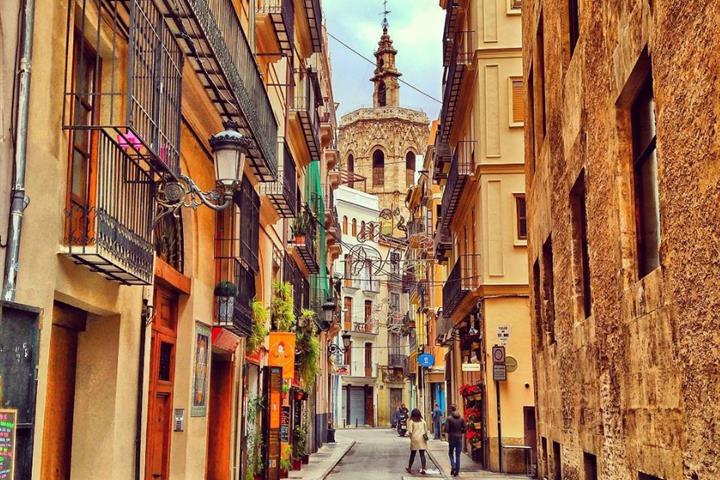In the following article, I am going to discuss the realities of living abroad. Currently, I am working in
Valencia, Spain as an English teacher in an academy based in the city centre which when it finishes,
will have totalled three months of living and breathing a Valencian way of life. It can and has been a
fantastic opportunity for me, and I thoroughly recommend the experience. But for those considering
it, you should bear in mind that it will present new challenges.
Learning a new language from scratch is a fundamental part of adjustment to living abroad. Despite
having a good grounding in Spanish from my degree, learning and refamiliarising myself with has
taken up a significant amount of my time. According to the Cervantes institute, Spanish ranks fourth
in the world’s most spoken languages behind only English, Mandarin, and Hindi. Spanish people also
tend to be very chatty, so the exposure to new vocabulary and critically, learning imaginative ways
to swear (‘me cago en la leche’ being an all-time favourite) have presented a steep learning curve.
This process has its ups and downs. Whenever I’ve failed to find the correct word or I’ve made a
grammatical error, I have felt exposed and foolish; using a second language puts a lot of pressure on
you if you’re introverted. On the other hand, it has been very fulfilling to use the language to
interact with my co-workers and friends outside of work. Once you’ve pushed past the awkward
stage of worrying what native speakers think, you’ll be coming along in leaps and bounds!
Ultimately, you’re not just speaking a new language to facilitate work, you also need it to make
friends. Feeling at one with the local community takes time and patience, so don’t beat yourself up if
you don’t develop strong friendships immediately; realistically, as in any country, they take time. It’s
natural to feel homesick and miss the stable relationships established before moving abroad. But
putting yourself out there with a willingness to talk, try new hobbies and learn does pay off.
A second important factor has been establishing a routine. Essentially, you need to bring or develop
all the better habits from back home with you: Eating, cleaning your accommodation, and exercising
regularly. In my case, I have incorporated training with a hockey club, bachata classes and travel into
my day-to-day. Obviously, this varies from person to person depending on your interests but
engaging with groups or clubs regularly will make you feel integrated in your local setting.
Lastly, having a safe space, usually a bedroom is very important. Having a bad day in a place
unfamiliar to you seems doubly worse at first, so ideally you would have a private area where you
could go to relax and destress from the day. I have often mediated in my room using Myspace; an
app which provided courses and exercises for breathing and mental health. Also, even if you feel you
may be on your own, there are always people who do care, believe me! There are services both
online and face-to-face which cater to immigrants and tourists (a good example being Erasmus
events in Valencia which organises events for young people studying or working in the city).
I know when the time comes for me to leave Spain, I will be both happy to see my family and friends
from England but also very sad to go. I appreciate it’s not always the case that one settles down
somewhere new. But for me, life in Valencia has been rewarding and entertaining. So much so that it
has made me want to write this short article encouraging others to do the same. As in any
adventure, the only way to make the most out of it is to be brave.
